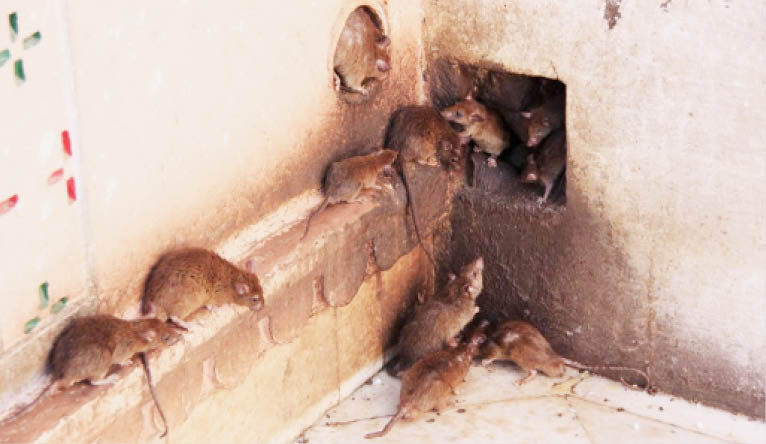There is a story of a man whose house was attacked in the middle of the night by armed robbers. They came in quietly brandishing their arms and the man had no choice but to open his doors and lay at their mercy. They stole his treasures and killed his family. Later when they had left, he started screaming in the neighbourhood: ‘Help me! Help me’ and the neighbours ran to his aid, but alas! There was nothing they could do; the damage had been done.
In Hausa we call it: ‘Ihu bayan hari’
The case of Lassa fever in Nigeria is not new. It was discovered in 1969 in the village of Lassa in Borno state. Yet, fifty-one years later we still shiver when we hear the words ‘Lassa fever’. Currently, in Nigeria, there are only 21 centres spread across 17 states that have the capacity to manage Lassa fever appropriately. There are also only five laboratories, in the whole country, equipped with facilities to test for the virus. Fortunately for us, Lassa fever in most cases is self-limiting. What this means is that, most people who contact the infection often get better without treatment. They might experience a mild fever and some flu like symptoms but they usually recover. Some patients are even asymptomatic, meaning they do not develop symptoms at all. But what about those who do? If not detected early, the symptoms can be severe enough leading to multiple organ damage and eventually death. There are so many people in villages who have died from undiagnosed febrile illnesses or are being bombarded with antimalarials and antibiotics just because there is no facility nearby to test for Lassa. Sadly, not only are there no readily available testing kits, there is also no awareness.
I first heard of the term- Neglected Tropical Diseases eight years ago at a revision course for doctors in Keffi, Nasarawa State. They are a group of infectious diseases most neglected because they dwell mostly in low-income countries. Diseases like leishmaniasis, leprosy and elephantiasis are the commonest neglected diseases. But what about Lassa? It is only mentioned whenever there is an outbreak and thereafter forgotten. Forgotten by the media and in a lot of cases by the healthcare professionals themselves. It is only when there are multiple deaths that we start scrambling to set guidelines and put precautionary measures in place. Do we know the number of people who have died in Lassa in Nigeria? No. Do we know the number of health care workers that have died from treating Lassa? No. Why? I will tell you. Stay with me.
The most popular name associated with Lassa is Aniru Conteh. Have you ever heard of him? No, will be the likely answer. He was a medical doctor from Sierra Leone who trained in Ibadan and dedicated his life to managing patients with the infection. He later contacted the disease while drawing blood from a young infected nurse. She died the following day, while he died 18 days after from renal failure. I remember watching the video of an American doctor, Kent Brantly, who contracted Ebola while working in Liberia. His country, not only flew him back home, but conducted several experimental treatments on him, until he recovered. Treatment that up till now has not been ‘approved’ by the FDA six years later. I remember watching how happily the entire medical staff clapped when he walked out of the hospital, cured. I remember again, the feeling of envy that pinched my heart as I wondered when Nigeria would ever care about its healthcare workers the way other countries do.
Which brings us back to question with Lassa fever. Why is it neglected? It is neglected because the international community is not involved. Quite simply, it does not affect them. The reservoir of infection, a rat called Mastomys Natalensis resides predominantly in Sub Sahran Africa. Therefore, it is not their problem. And why should it be? Why should we only be on alert when the international community is watching?
I have watched with pride how the Nigerian Government is tackling the COVID-19 pandemic; and while it shows what, we as a nation can do when united, there is a small part of my conscience that realises that we are only doing ‘Eye service’. Eye service. There, I said it. The only reason why diseases like Malaria gets so much funding and recognition is because it affects Latin America and Asia as well. Is this how we want to continue? 51 years later? We have to wake up from our collective slumber and fight this battle ourselves. We cannot continue to lose Nigerian Lives to Lassa.
51 years later, we have to do better.

 Join Daily Trust WhatsApp Community For Quick Access To News and Happenings Around You.
Join Daily Trust WhatsApp Community For Quick Access To News and Happenings Around You.


